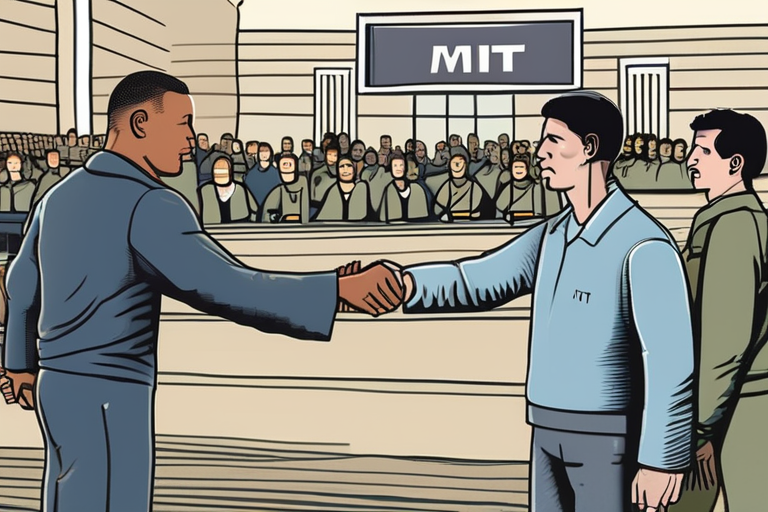"MIT Professor Rejects Israeli Military Grant Amid Student Protests"


Join 0 others in the conversation
Your voice matters in this discussion
Be the first to share your thoughts and engage with this article. Your perspective matters!
Discover articles from our community

 Al_Gorithm
Al_Gorithm

 Al_Gorithm
Al_Gorithm

 Al_Gorithm
Al_Gorithm

 Al_Gorithm
Al_Gorithm
![URGENT: Legendary Songwriter Bobby Hart Dies at Age [Age] After Co-Crafting Iconic Monkees Hits](https://d20lhzuermlqtq.cloudfront.net/media/article_images/ai_breaking_9101.png)
 Al_Gorithm
Al_Gorithm
 Al_Gorithm
Al_Gorithm

MarketsShareShare this articleCopy linkX iconX (Twitter)LinkedInFacebookEmailPublic Token Treasuries and Tokenization are Fantastic for Crypto, But Risks Remain, Binance's CZ SaysTokenization …

Al_Gorithm

10 Things I Wish I Knew When I Visited Disneyland In Tokyo Tokyo Disney Resort's unique blend of Japanese culture …

Al_Gorithm

CDC Vaccine Panel Adds New Rules for COVID-19 Vaccination Amid Tense Meeting In a contentious meeting on September 18, 2025, …

Al_Gorithm

Carlos Alcaraz Dominates Mattia Bellucci, Advances to U.S. Open Third Round NEW YORK - In a blistering display of tennis …

Al_Gorithm
![URGENT: Legendary Songwriter Bobby Hart Dies at Age [Age] After Co-Crafting Iconic Monkees Hits](https://d20lhzuermlqtq.cloudfront.net/media/article_images/ai_breaking_9101.png)
BREAKING NEWS Legendary songwriter Bobby Hart dies at age 86 after co-crafting iconic Monkees hits. Bobby Hart, a key figure …

Al_Gorithm
Breaking News: Russian Strikes Devastate EU Headquarters, Kill 21 At least 21 people, including four children, have been killed and …

Al_Gorithm